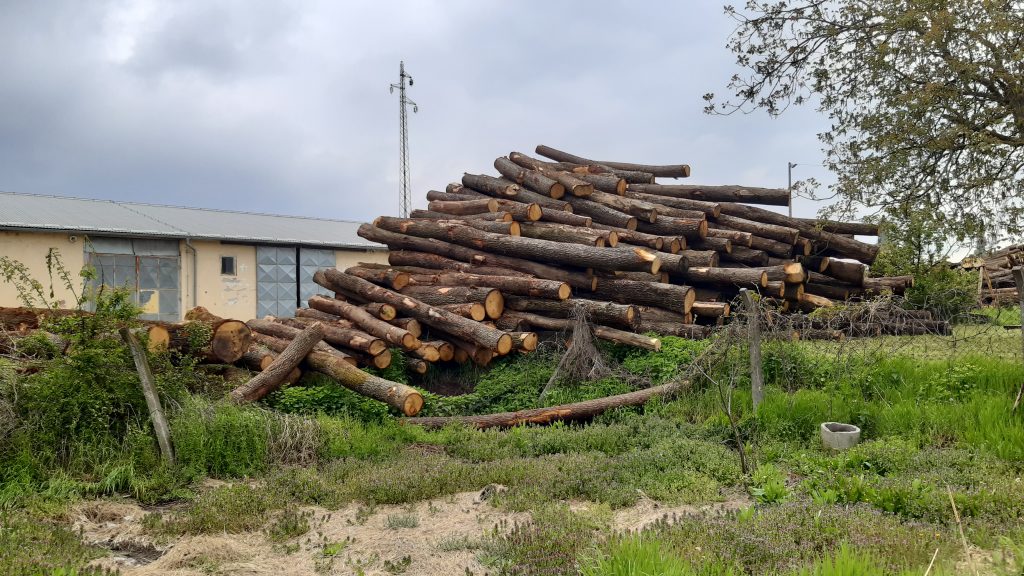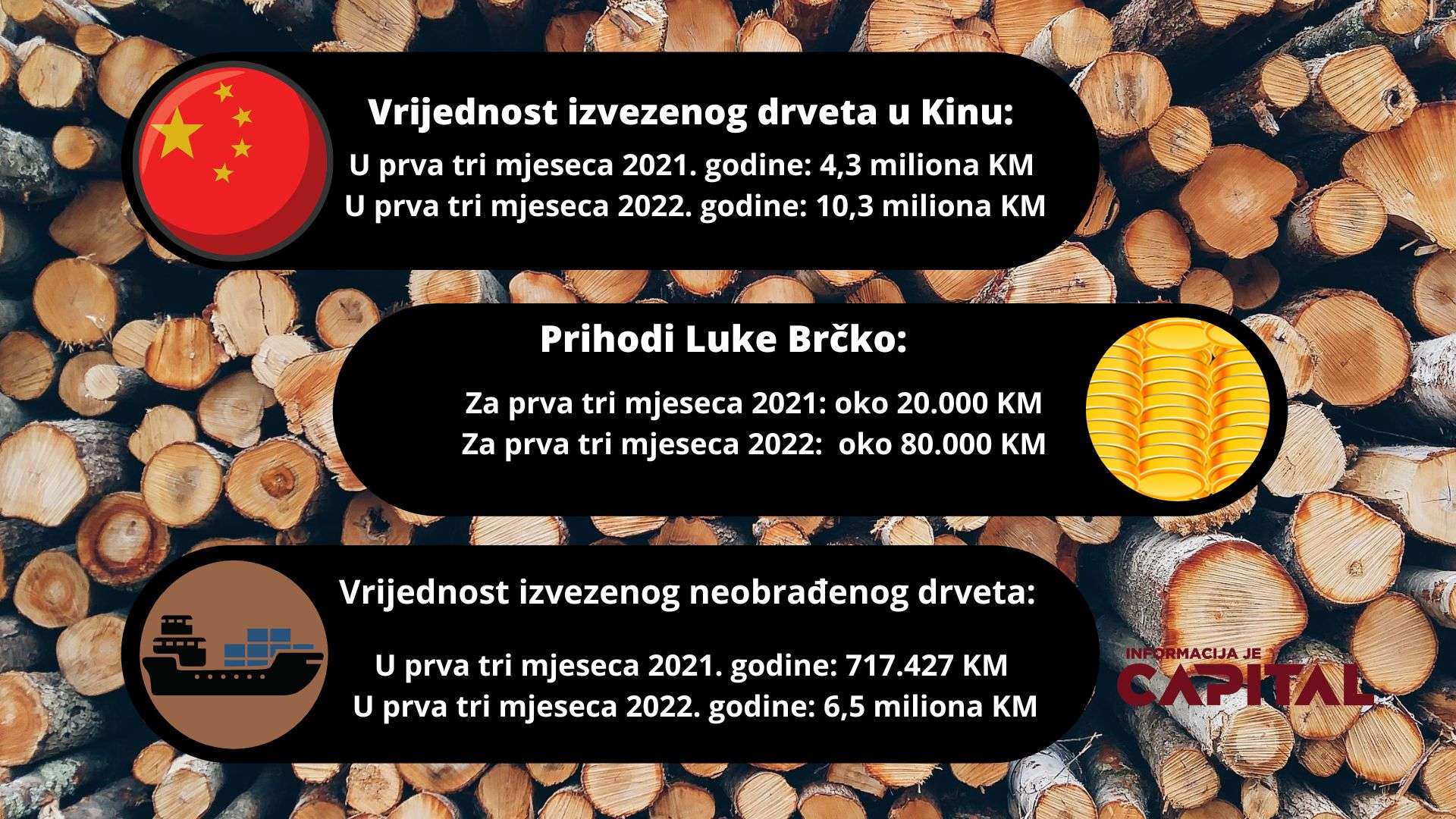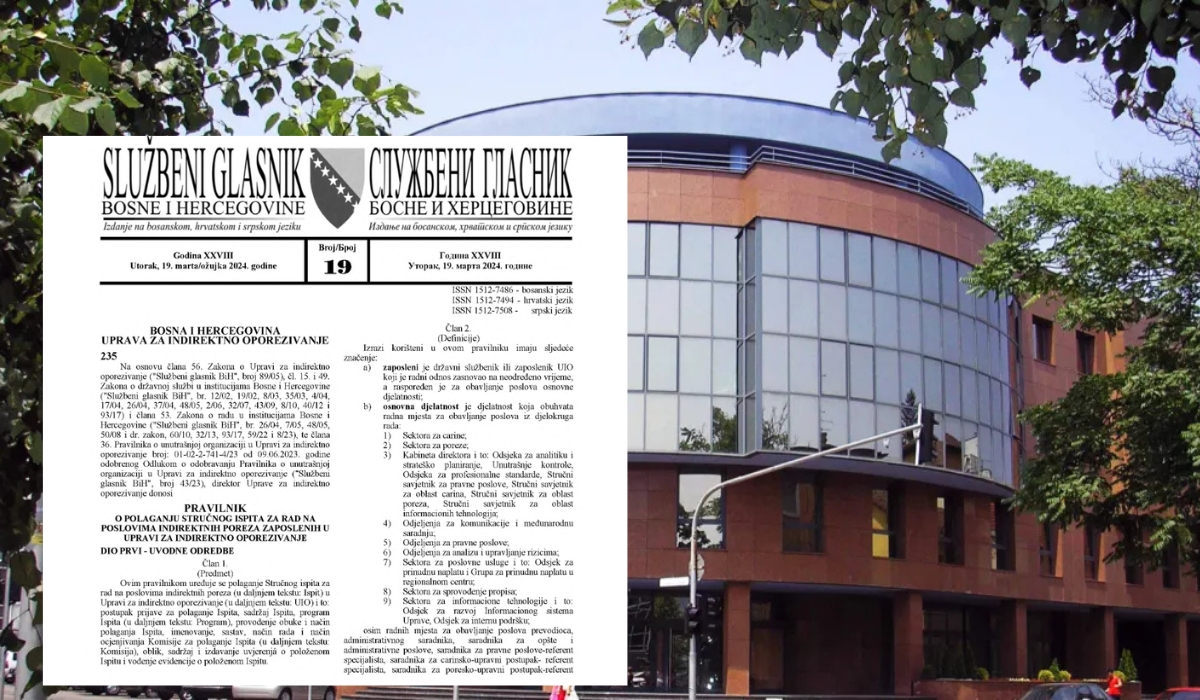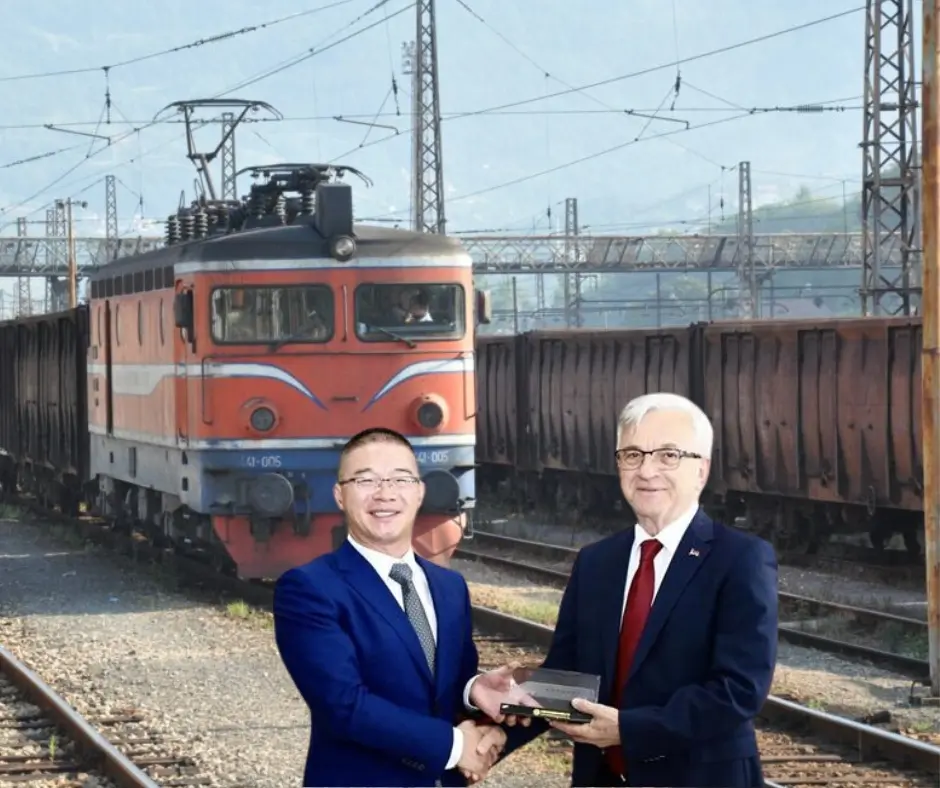While the BiH authorities have voted against banning the export of logs several times, China is giving huge incentives to its citizens to import wood assortments, which the Chinese have used and come to BiH with bags full of cash, buy logs at much higher prices than in “Šume Srpske” and export them to their country in containers, reveals the CAPITAL portal
Writes: M. Čigoja Ljubojević, A. Pisarević
The logs are mostly exported through the Port of Brčko, where logs are brought by truck, and then transferred to containers and transported to China.
Most of the oak logs are bought in private ownership, for which the Chinese pay from 600 to 900 KM per cubic meter, while the average price of oak, which “Šume Srpske” charges around 230 KM per cubic meter.
That is why, as we find out, illegal logging has increased, because many are trying to use the huge demand and complete lack of interest of the state to protect their producers, and according to wood processors, resale of logs that “šume Srpske” sells to companies is again in progress, which is prohibited by contracts.
Numerous interlocutors of CAPITAL in the field of wood industry confirmed our information, stating that due to the irresponsible attitude of the state towards businessmen, which does not want to make a decision on a temporary export ban, a significant number of jobs are endangered, because domestic companies are left without raw materials.
The Chinese use the lack of political will in BiH
Unlike Serbia, which made a decision a few days ago on a temporary ban on the export of wood assortments of high importance for that country, the representatives of the BiH authorities are not very interested in that topic, and recently again rejected the proposal to temporarily ban the export of logs. It is obvious that the lack of political will in BiH is in favour of the growing Chinese hunger for raw materials.
We should not ignore the fact that China has been working on a number of large projects in BiH in recent years and that their investors are often met with numerous benefits. One of the examples is certainly the Banja Luka-Prijedor highway, which will be built by the Chinese, although the concession agreement for its construction has never received the full consent of the Republika Srpska Attorney’s Office.
The Chinese have also received major projects in the RS electricity sector, such as HPP Dabar and HPP Bistrica, as well as Unit 7 of TPP Tuzla in FBiH, the construction of which, according to media reports, is increasingly uncertain.
Owners of Chinese companies at sawmills in Srpska
A CAPITAL source from “Šume Srpske” says that the owners of Chinese companies personally come to sawmills in BiH and give quite large sums for logs. He also states that the Chinese had a plan in case the BiH authorities ban export.
“They were completely prepared for the terrain and intended to buy domestic sawmills and work here in case BiH adopts a decision to ban the export of logs“, he said.

Photo: Dragan Đukić
He says that currently, the problem is cutting down private forests because the price offered by the Chinese has jumped so much that people are trying in every way to cut more than what they are allowed to do.
He explains that, although it is a private forest, the owners cannot cut down at their own discretion, but must obtain a permit from “Šume Srpske”, that is, local farms.
He points out that people report the minimum amount of forest that they will cut in order to have some sort of documentation, while in practice they cut far more.
He adds that most of these jobs are done by buyers who receive a power of attorney from the owners of private forests and they continue to finish everything.
“It happens that a man sends us a request to cut down 10 cubic meters of forest. He freely estimates that he can cut so much. Our engineer came out and allowed him to cut 20 cubic meters, because the owner of the forest probably wanted to honour him. However, it happens that on those 20 allocated, he cuts 40 cubic meters and there is a problem because currently in Republika Srpska a large number of people are cutting down their forest and it can literally be devastating, but it is difficult to control it all“, says our interlocutor.
Woodworkers: The Chinese bring bags of cash and buy logs, and we run out of raw materials
The owner of the company “Drvoprodex”, Darko Partalo, says that the dealers of logs, private companies, collect logs, primarily from private forests, and sell them to other companies that export to China. However, it is not uncommon for the Chinese themselves to go around the field and offer much higher numbers than domestic companies to get to the logs.
“Even the Chinese are there on the field, bringing bags of cash and buying logs, putting them in containers and driving to China. Prices are unrealistic because they have great incentives from their country and seriously destroy our competitiveness. What is worst is that they take away our raw materials, so that our factories do not have enough quantities for the final processing of wood, and we cannot prevent that. We asked the BiH authorities to make a decision on a temporary ban on exports, and that proposal was at the session of the Council of Ministers, but it did not pass. Obviously, some of those traders lobbied for the decision not to pass, because businessmen from RS and FBiH were completely united on the issue, which was supported by the majority of ministers“, Partalo told CAPITAL.


According to the data of the Indirect Taxation Authority (ITA) of BiH, the export of wood from BiH to China in the first quarter of this year compared to the same period last year increased two and a half times.
The value of exported wood to China in the first three months of this year was 10.4 million KM, and in the same period last year 4.3 million KM. That export is dominated by unprocessed wood, whose export increased from 717,427 KM in the first three months of last year to as much as 6.5 million KM in the same period this year.
His words are confirmed by other wood processors who point out that oak in RS and BiH only half a year ago cost around 300 KM, while now it costs from 800 to as much as 1,300 KM.
“Their customers, people who work for the Chinese, give twice as much as the usual price. If, for example, I go and give for a forest that costs 30,000 KM a down payment of 5,000 KM, they come and give 10,000 KM for a down payment, so they cover mine and increase it by so much more for them to buy“, says one of the woodcutters we talked with.
He states that they can give so much money because China gives subsidies for imports in the amount of the value of the goods.
“So, the state fully covers the price of the purchase of raw materials, and they earn money from the work of the sawmill“, states our interlocutor.
That is why, he adds, local wood processors, who have 30 to 40 workers, are left without goods, and those who buy for the Chinese earn from 100 to 200 KM per cubic meter.
He points out that the average price of oak in forestry is from 200 to 300 KM, depending on the class, while in private forests, the worst class costs from 500 to 550 KM.
“Today, half of the wood processors in BiH can no longer compete and buy logs or planks, which is why half of them will fail. People call me to buy a board, offer 800-900 KM, and I paid that much for the log. Now much more has to be offered to buy a board. All small carpenters who worked small, will have to close companies“, states this wood processor.
Revenues of the Port of Brčko from exports to China in three months this year are twice as high as in the whole of 2021
The director of the Port of Brčko, Perica Josić, says for CAPITAL that they are doing the service of reloading full and empty containers for companies that export logs and renting open storage space.
The significant increase in exports was also reflected in their revenues, which in the first three months of this year alone were twice as high as in the whole of last year.
Exporters
In addition to the increase in the value of exports, data from the ITA BiH show that the number of exporters to China has also increased this year. Thus, there were 14 companies on the list of exporters in the first quarter of last year, while this year that number increased to 26. Among the companies exporting “AL-EX” Zenica, “Archigreen” Sarajevo, “Beli-Borna” Laktasi, “BH Export” Brčko, “Biofood”, “DD Export” Brčko, “D-Group”, “Euroholz”, “Fulin wood”, “Genena” Usora, “Gramex” Sarajevo, “No limit” Prijedor and others.
“We had about 20,000 KM of revenue in the whole of last year, and now in the first quarter we are already at some 70,000 to 80,000 KM of revenue from container handling“, said Josić, adding that about 50 containers arrive in Luka every week.
The logs are also transported by rail, and CAPITAL is in possession of the footage showing 40 wagons with logs exported to China.
Secretary of the Association of Forestry and Wood Processing in the RS Chamber of Commerce Šinik states that businessmen demanded a ban on exports precisely because various “takeovers” appeared who export large quantities of logs to the Chinese market.
“We also have significant capacities in private forests, which make up about 22 per cent of the total forests, and that was mostly towards our companies until the end of last year. However, unfair competition has now emerged. Therefore, a temporary export ban would be important for us, but I do not know why there was no understanding of the authorities to pass it. On the other hand, some of the wood is resold by irresponsible buyers of “Šume Srpske” who, instead of processing, sell logs“, says Šinik and adds that “Šume” is obliged to terminate contracts with such buyers.
However, in “Šume Srpske” they claim that they are not aware of the increased export of logs to China or that their customers are selling forest wood assortments.
“The company does not have the authority or the mechanism to control the export of forest wood assortments, because that is the responsibility of the customs and the Border Police“, they said in “Šume”.
We remind you that the Council of Ministers of BiH recently considered the proposal of the decision on the ban on the export of logs, but it did not pass because the ministers from the Federation of BiH voted against.
We were not able to get the comment of the Minister of Foreign Trade and Economic Relations of BiH, Staša Košarac, because he did not answer phone calls and messages.





